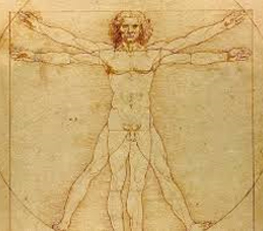(09-07-2018) Heavy menstruation could be a symptom of an underlying condition that causes fertility problems
(Natural News) If you suffer from heavy periods, it could be a sign that you may havean underlying health condition.
Recent research revealed that at least 25 percent of women of reproductive age suffer heavy periods that may significantly impact their quality of life. The experts explained that in some cases, the heavy bleeding women experience could be due to an underlying health condition that can also cause fertility problems.
These may include polycystic ovary syndrome (PCOS) and endometriosis, which both affect a woman’s fertility. Professor Mark Baker, of the center for guidelines at The National Institute for Health and Care Excellence(NICE), explained that heavy menstrual bleeding is a common condition that can greatly affect a woman’s well-being. He also said that in most cases, ultrasound has been replaced with hysteroscopy. The latter is used as a first-line investigative test because it produces a more conclusive diagnosis. (Related:Six Natural Remedies to Reduce Pain During Your Period.)
A lot of women who experience common gynecological conditions have expressed their dismay since GPs have often dismissed their conditions as normal. One of the most common disorders is PCOS, where a woman’s ovaries become enlarged and produce abnormal hormones. PCOS may cause irregular or heavy periods. The condition can also result in infertility since a woman doesn’t always release an egg. Meanwhile, endometriosis occurs when womb tissue grows in the ovaries and fallopian tubes.
Fast Facts on PCOS and female hormones
Polycystic ovary syndrome (PCOS) refers toa group of symptoms affecting hormones in women of reproductive age (15 to 44 years old). At least 2.2 and 26.7 percent of women who belong to this age group develop PCOS. “Polycystic†means “many cysts.â€
Not all women with PCOS are aware that they have it. In fact, a study revealed that at least 70 percent of women with PCOS have never been diagnosed.
PCOS affects a woman’s ovaries, specifically, the reproductive organs that produce estrogen and progesterone, the hormones that regulate the menstrual cycle.
The ovaries also produce a small amount of androgens or male hormones. Ovaries release eggs which can be fertilized by a man’s sperm. Ovulation refers to when the eggs are released each month.
Follicle-stimulating hormone (FSH) and luteinizing hormone (LH) regulate ovulation. FSH triggers the ovary’s ability produce a follicle, or a sac that contains an egg. LH then stimulates the ovary so it releases a mature egg.
PCOS affects the ovaries and ovulation. Its three main features are cysts that form in the ovaries, overproduction of male hormones, and irregular/skipped periods.
A woman with PCOS will grow several small sacs in her the ovaries. These fluid-filled sacs are follicles and each one holds an immature egg. However, the eggs do not mature and they are unable to trigger ovulation. This lack of ovulation affects a woman’s estrogen, progesterone, FSH, and LH levels. While a patient’s estrogen and progesterone levels are lower than normal, their androgen levels are higher.
The extra male hormones disrupt the menstrual cycle so women with PCOS have fewer periods than women without PCOS.
Italian physician Antonio Vallisneri first described the symptoms of PCOS back in 1721.
Fast facts on endometriosis
Endometriosis is theabnormal growth of endometrial cellsthat are like those that form on the inside of the uterus. However, the cells grow outside the uterus.
Endometriosis often occurs on other organs of the pelvis.
The exact cause of endometriosis remains unknown.
While endometriosis is more common in women who are experiencing infertility than in fertile women, the condition does not necessarily cause infertility.
You can read more articles about menstruation and fertility atWomensHealth.news.
Sources include:
DeccanChronicle.com
Healthline.com
MedicineNet.com
News
In evidenza
 "L'informazione presente nel sito serve a migliorare, e non a sostituire, il rapporto medico-paziente."
"L'informazione presente nel sito serve a migliorare, e non a sostituire, il rapporto medico-paziente."
Per coloro che hanno problemi di salute si consiglia di consultare sempre il proprio medico curante.

Informazioni utili
-
Ricette a zona
-
Tabelle nutrizionali
-
Tabella composizione corporea
-
ABC della nutrizione






